 COPE response to Science paper submission of fake paper
COPE response to Science paper submission of fake paper
At COPE we have followed with intense interest the recent report in Science of a fake paper submitted to multiple journals, some of whom accepted it. There is no doubt that this "sting" raises a number of issues, that academic publishing and those who seek to improve it, need to tackle head on-though I'd argue they are not necessarily the ones that Science thinks are top priorities.
What have we learnt?
First, that out on the Internet there exist many journals whose peer review is scanty or non-existent. Indeed for many of these journals their editorial processes, reviewer boards and editors may not even exist. That, in other words, the Internet has sites we cannot trust. This is of course not news; as Mike Eisen said in an earlier discussion on this issue, journals such as this are the publishing equivalent of Nigerian banking scams.
Second, that some of these questionable journals have managed to get themselves onto the lists of respected industry association bodies - including COPE. At COPE, some may have been included because they were in the lists of journals submitted by reputable publishers but others may have been included because, as we are very aware at COPE, our processes for inclusion have not in the past been set up to screen every journal individually or to scrutinise publishers in great depth. We have been aware of the increasing number of journals seeking to join us and we have recently increased our checks on those who seek to join - either as a publisher or an individual journal - and this will be a further spur to improve our processes here.
Third, we have learnt that considerable confusion still remains about what constitutes an "open-access" journal and that the term may be used as a cover for journals that seek credibility. However, as many commentators have said, because this article only looked at journals that styled themselves as "open access" it tells us nothing about whether the failing of peer review demonstrated here are due to a particular business model, particularly as practised by reputable publishers.
Fourth, and perhaps most worryingly of all, we have learnt from the coverage in the non-scientific press, who are always looking for a good scandal, that an unforeseen consequence of this experiment may be to cast doubt on the entire publishing industry and peer review’s place in it. It may further confuse the public who genuinely struggle to understand what they should trust in the myriad of research findings that are published each day.
What are the constructive next steps?
First, COPE was founded as an organisation that seeks to educate and support its members and this drives what we do day-to-day. Our focus is on practical, pragmatic advice and to that end we produce a number of resources for members, which provide concrete guidance that can also be used by anyone involved in publishing. Our most recent guidelines, which are especially relevant, set out the basic principles and standards to which all peer reviewers should adhere during the peer-review process. We encourage everyone involved in journal publishing to read them.
Second, journals or publishers who do not share COPE's values have no place as members. We are looking at which of our member journals accepted the paper; however, we do not think it is our role to punish journals who are genuinely trying to improve their processes and we will continue to work with them, including providing advice for any members that have to retract the fake paper submitted to them by Science.
Third, we also believe that this is an opportunity to further educate the public about the role that journals and peer review play in science communication, to help them understand that no paper published is ever perfect or carries a stamp that it won't at some time in the future be revised or called into question and that peer review, even at the most prestigious journals, frequently does not spot fraud or questionable research.
Finally, we hope at COPE that this article provides further impetus to the debate about how science is communicated and its strengths and flaws, whatever the business model.
The Seventh International Congress on Peer Review and Biomedical Publication
The 7th International Congress on Peer Review and Biomedical Publication was held on 8-10 September, 2013, in Chicago, IL, USA. A number of topics related to the quality of scientific publishing were discussed both in plenary and in poster presentations. Abstracts of all the presentations can be found here (http://www.peerreviewcongress.org/index.html). Many COPE members were present, and COPE guidelines and flowcharts was frequently mentioned in the discussions as very helpful. COPE Council member Irene Hames presented an analysis of the almost 500 cases COPE has discussed since it was established in 1997. Her plenary presentation was very well received and sparked a lot of comments and questions. It will later be followed up by more detailed analysis.
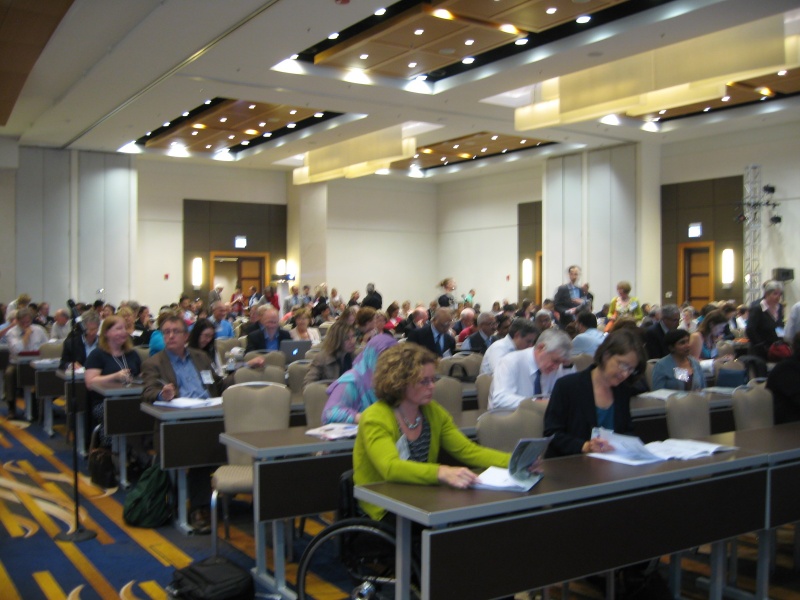
Delegates at the Peer Review Congress
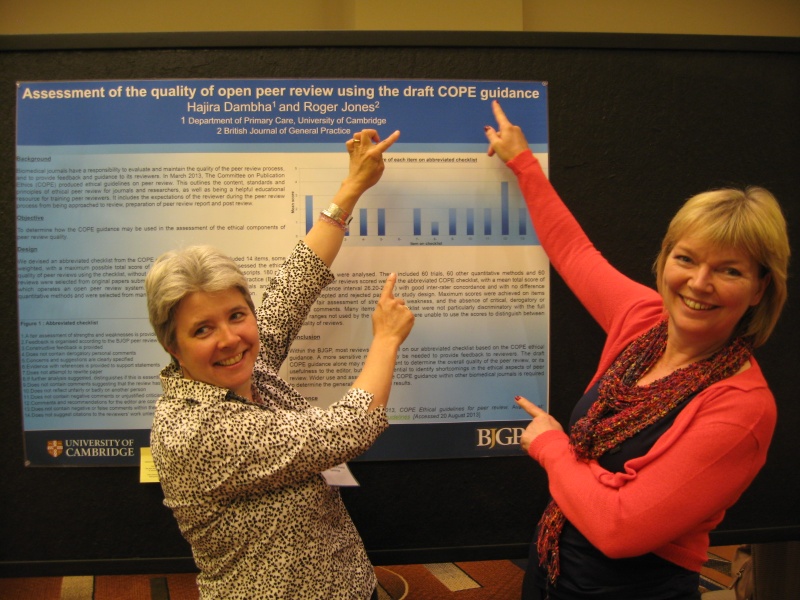
Virginia Barbour and Charlotte Haug perusing a poster that uses COPE guidelines
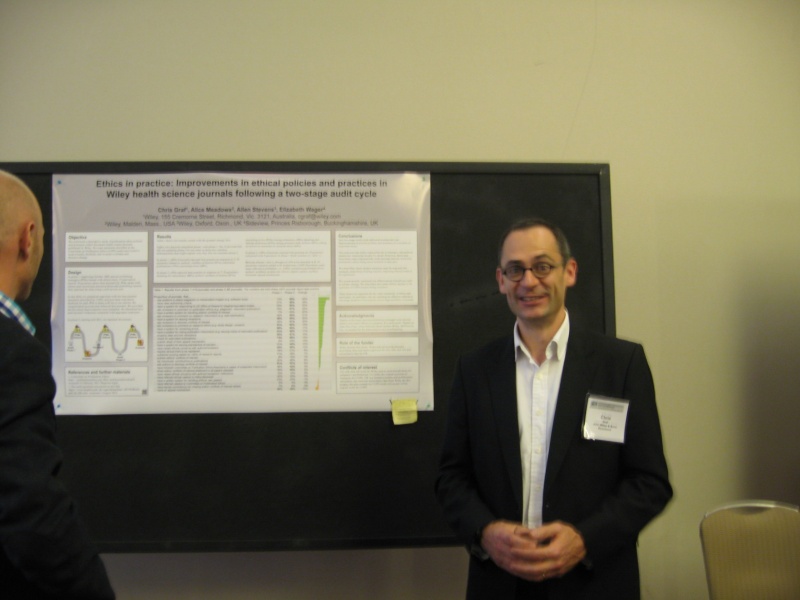
COPE Treasurer Chris Graf presents a poster on behalf of Wiley Blackwell
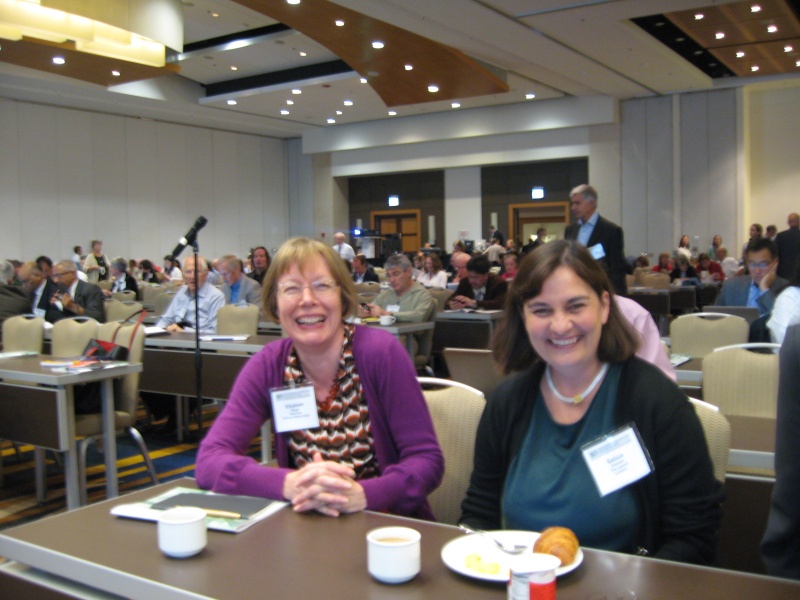
Ex COPE Chair and Vice-Chair, Liz Wager and Sabine Kleinert
EASE/ISMTE joint meeting, 23-24 September, Blankenberge, Belgium
A joint meeting between EASE (European Association of Science Editors) and ISMTE (International Society of Managing and Technical Editors) was held recently in Belgium. COPE Council members Irene Hames, André Van Steirteghem and Mirjam Curno conducted a COPE Case Study Workshop as a parallel session. The prgramme and presentations can be seen here http://www.ease.org.uk/node/852.
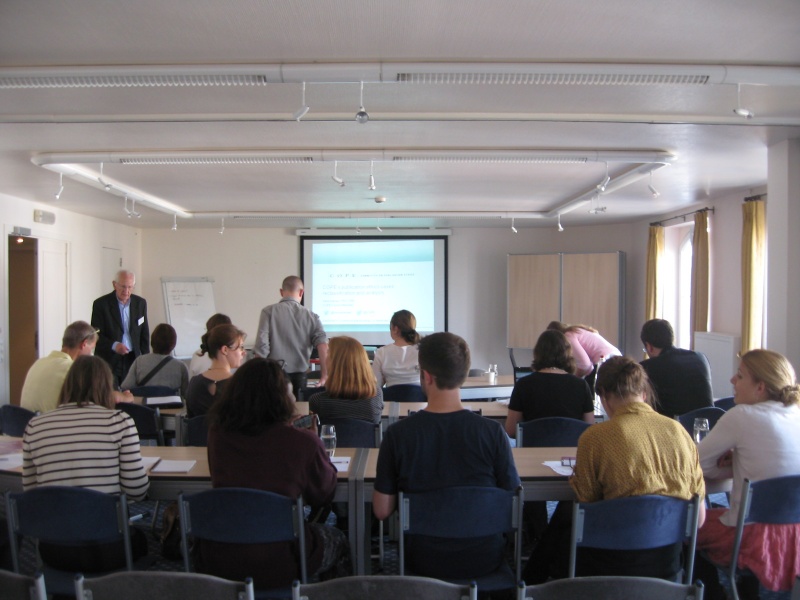
COPE Council member, André Van Steirteghem, talking with delegates at the COPE Case Study Workshop
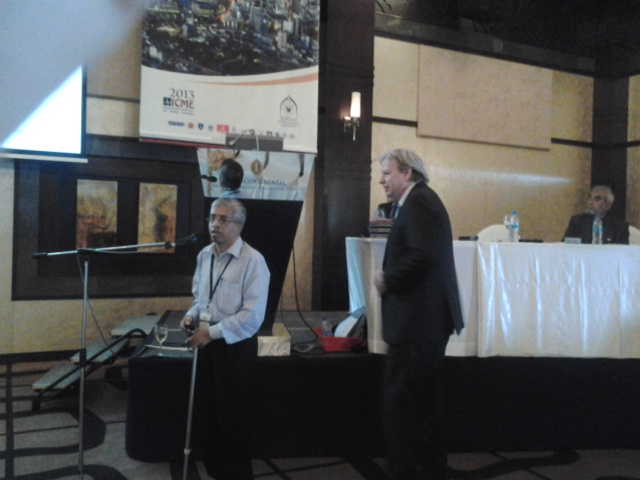 International Conference on Medical Education (ICME), 2-6 October, Balaclava, Mauritius
International Conference on Medical Education (ICME), 2-6 October, Balaclava, Mauritius
International Advisory Group member, Professor Kusal Das, attended this conference in Mauritius. The theme was Health Professions Education: Aspiring for Excellence and included discussions on topics such as 'ethics and professionalism in medical practice' and 'scholarship and leadership in medical education'.
Professor Das's report of the meeting can be read here.
2nd International Scientific Practical Conference 'World-class scientific journal: problems, solutions, preparation and inclusion into citation indices and reference databases', and 'Innovative Educational Technologies in Medicine', Russia
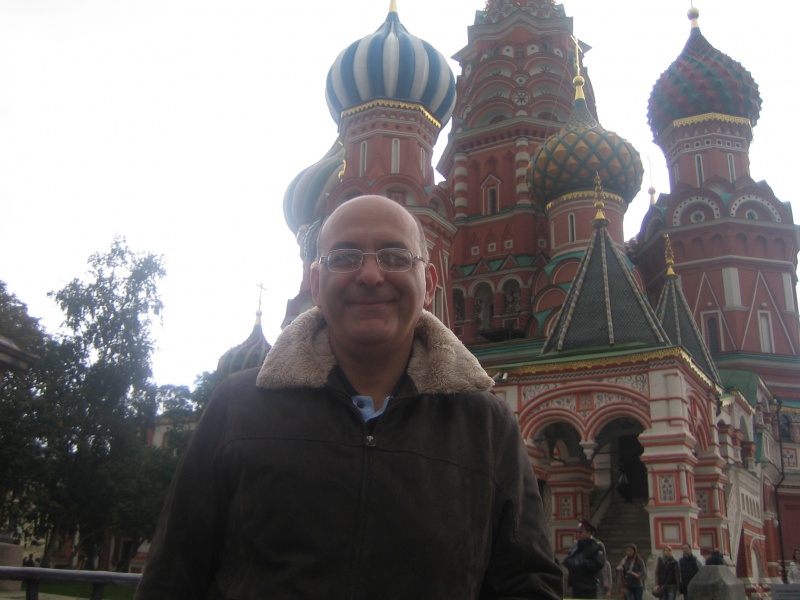 COPE Council member, Behrooz Astaneh, attended both of these conferences in Moscow, Russia on behalf of COPE in September. 200-250 particpants attended both conferences and Behrooz spoke to the delegates about COPE and its ethical guidelines. This led to the idea of having a specific Russian Ethics Committee for such issues. Behrooz's full report can be read here.
COPE Council member, Behrooz Astaneh, attended both of these conferences in Moscow, Russia on behalf of COPE in September. 200-250 particpants attended both conferences and Behrooz spoke to the delegates about COPE and its ethical guidelines. This led to the idea of having a specific Russian Ethics Committee for such issues. Behrooz's full report can be read here.
COPE European Seminar 2014, 14 March 2014, Brussels, Belgium
For the first time in its history, the COPE European Seminar is moving outside of London and being held in Brussels, Belgium. The theme of the seminar is 'European perspectives on publication ethics' with the invited speakers and full programme available to view here. We will also be accepting posters for display at the seminar as well as offering up to two scholarships. Information for submission of a poster or application for a scholarship can be found here: http://publicationethics.org/cope-european-seminar-2014
COPE materials
COPE has recently redesigned its stationery and marketing materials. The first set consists of a glossy A4 brochure, a smaller A5 flyer, business cards, compliment slips, and headed paper. All materials are available for our members to download and distribute and you can contact us here for more details on how to obtain these.
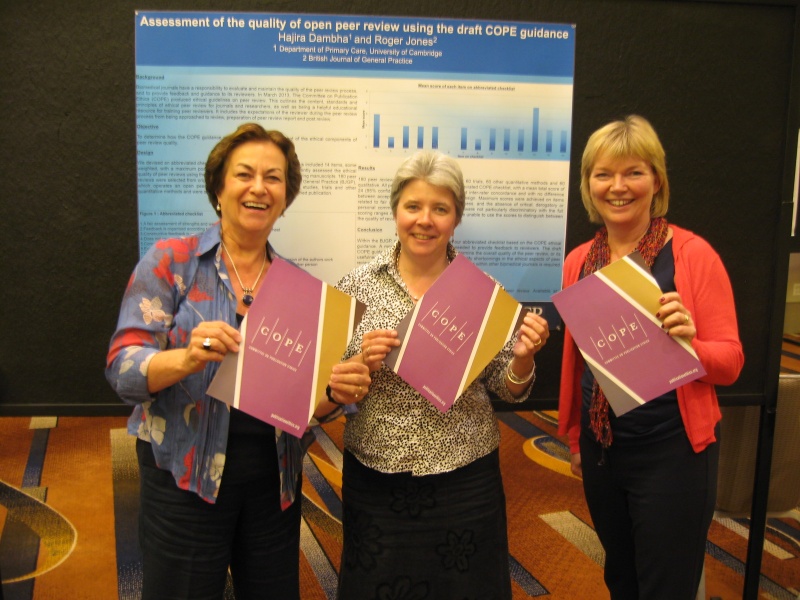
Irene Hames, Virginia Barbour and Charlotte Haug with the new COPE brochure at the Peer Review Congress
What's in a name?
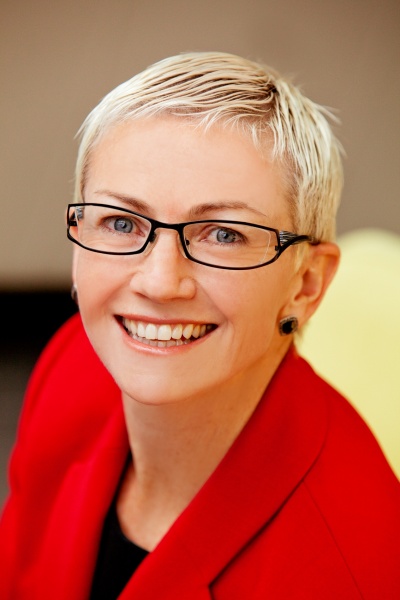 COPE Digest: Publication Ethics in Practice - how did we choose the name? The inspiration came from COPE Council member and Newsletter Editor, Irene Hames, and from COPE member, Professor Karen Woolley. Irene suggested COPE Digest and Karen suggested Publication Ethics in Practice. We felt that the title really sums up what the newsletter is all about - a brief overview of what is happening in publication ethics in the wider world, as well as offering guidelines and resources to help you with ethical issues on a practical level. Karen says "The title reflects what I sense members value most about COPE – an organisation that helps each of us deal with real-life issues in a very practical way".
COPE Digest: Publication Ethics in Practice - how did we choose the name? The inspiration came from COPE Council member and Newsletter Editor, Irene Hames, and from COPE member, Professor Karen Woolley. Irene suggested COPE Digest and Karen suggested Publication Ethics in Practice. We felt that the title really sums up what the newsletter is all about - a brief overview of what is happening in publication ethics in the wider world, as well as offering guidelines and resources to help you with ethical issues on a practical level. Karen says "The title reflects what I sense members value most about COPE – an organisation that helps each of us deal with real-life issues in a very practical way".
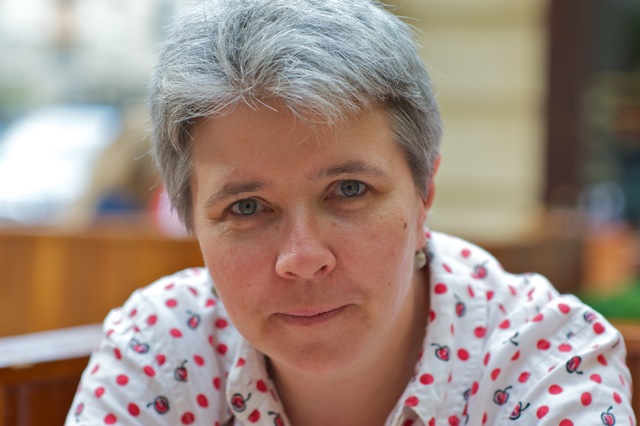 This month’s newsletter will be a little more digestible than the first one as we get into the swing of updating you monthly of what’s going on at COPE and beyond in publication ethics.
This month’s newsletter will be a little more digestible than the first one as we get into the swing of updating you monthly of what’s going on at COPE and beyond in publication ethics.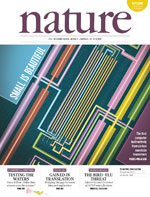 The authors of a paper appear to be ‘phantoms’, with falsified names similar to real researchers and false institutional affiliations. The work, however, seems genuine and from a researcher who was preparing to submit it for publication. An attempt to be a ‘spoiler’ of the results is suspected. Whether this case also constitutes a criminal case of internet fraud is being investigated.
The authors of a paper appear to be ‘phantoms’, with falsified names similar to real researchers and false institutional affiliations. The work, however, seems genuine and from a researcher who was preparing to submit it for publication. An attempt to be a ‘spoiler’ of the results is suspected. Whether this case also constitutes a criminal case of internet fraud is being investigated. Both parts of
Both parts of  An editorial on how scientific misconduct should be reported and dealt with published by the journal,
An editorial on how scientific misconduct should be reported and dealt with published by the journal, 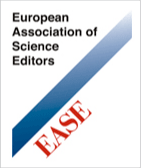 The second edition of the
The second edition of the  The Montreal Statement
The Montreal Statement 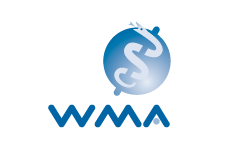 The
The  EQUATOR
EQUATOR COPE response to Science paper submission of fake paper
COPE response to Science paper submission of fake paper




 International Conference on Medical Education (ICME), 2-6 October, Balaclava, Mauritius
International Conference on Medical Education (ICME), 2-6 October, Balaclava, Mauritius